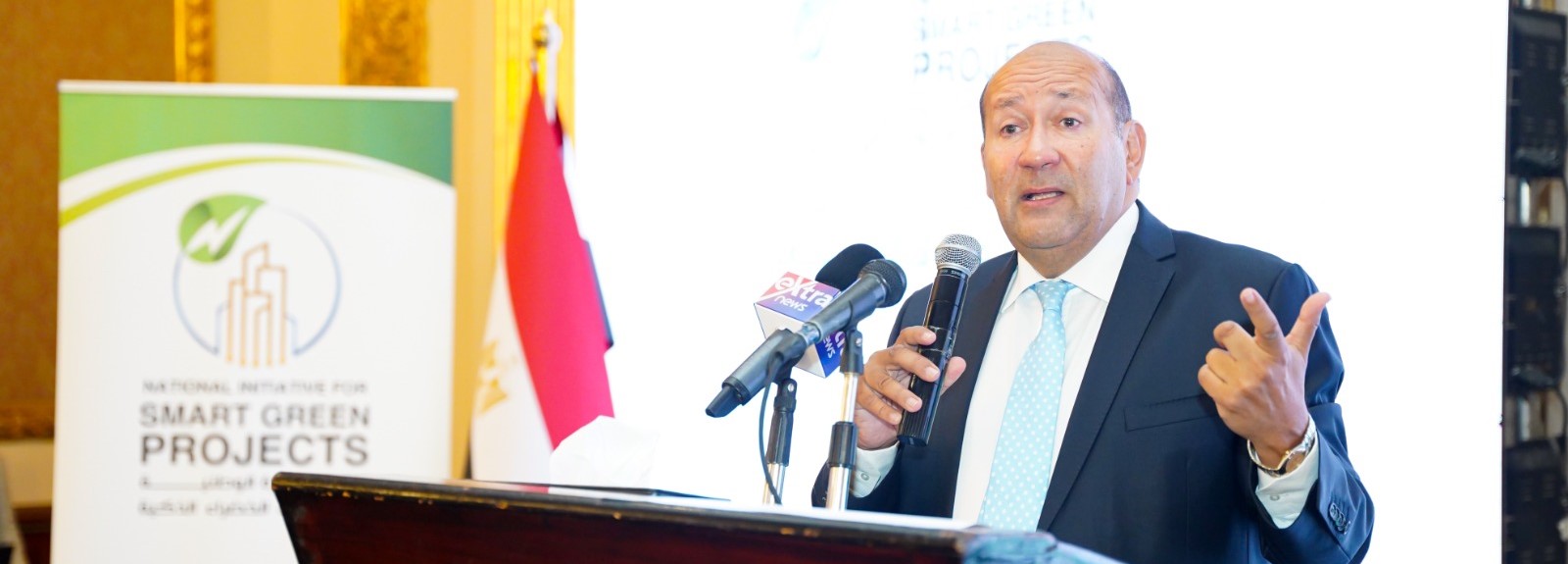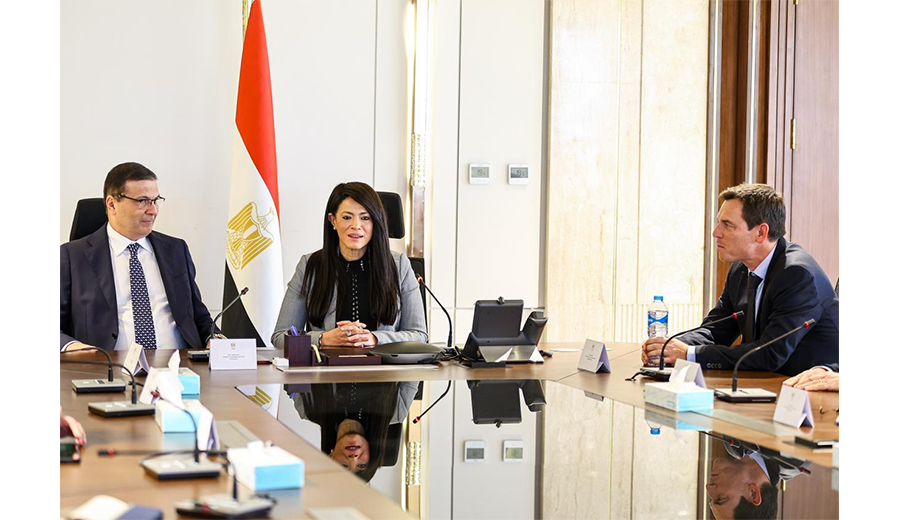The National Initiative for Smart Green Projects organizes a training program for executive committees in the governorates

02 September 2023
The Ministry of Planning and Economic Development, represented by the National Initiative for Smart Green Projects, held a training program for the executive committees in the governorates on the evaluation criteria for the National Initiative for Smart Green Projects, with the participation of Dr. Mahmoud Mohieldin UN Climate Change High-Level Champion for Egypt and Special Envoy on Financing the 2030 Agenda for Sustainable Development.
The ceremony witnessed the presence of Ambassador Hisham Badr, the National Coordinator of the Initiative, Engineer Khaled Mustafa, Permanent Undersecretary of the Ministry of Planning and Economic Development, Dr. Hashem Mohamed Hani, Associate Dean of the Faculty of Creative Arts at the University of Hertfordshire, and the training program for the executive committees of the National Initiative for Smart Green Projects.
Dr. Mahmoud Mohieldin confirmed that the National Initiative for Smart Green Projects has received great appreciation from Egypt’s development partners at the regional and international levels.
Mohieldin explained that the initiative succeeded in combining centralization through the direct sponsorship of President Abdel Fattah El-Sisi for the initiative and its coordination through the Cabinet and the efforts of the relevant ministries, and decentralization through the great efforts and contributions of the governorates and local agencies within the various cities and villages across the country.
Mohieldin said that the initiative succeeded in creating a knowledge base that can be built upon in studies and research related to the economy, development, and environmental and climate work.
He explained that the initiative will be present in the discussions of the Africa Climate Summit and the Africa Climate Week, which will be held in the Kenyan capital, Nairobi, in a few days, as an Egyptian model to be emulated for the localization of climate development work.
Mohieldin explained that the success of the first version of the initiative contributed to the good preparation for Cop27, which Sharm El-Sheikh hosted last November, which achieved great success at the local, national, regional, and global levels.
He pointed out that the outcomes of Sharm El-Sheikh are cited and built upon in regional and international forums. Important.
During his speech, Ambassador Hisham Badr explained that training on the criteria for selecting qualified projects determines an important starting point for selecting the promising and innovative projects that will be represented at the conference next November in the presence and participation of Dr. Mostafa Madbouly, Prime Minister.
Badr stressed that stimulating innovative solutions to environmental problems and turning them into promising investment opportunities and creating job opportunities is the essence and beating heart of the initiative.
Badr thanked the ministers, governors, various entities, and their representatives who made exceptional efforts in record time in the first session of the initiative to come up with pioneering projects that gave the world a glimpse of the latent capabilities of the Egyptian people, as well as the governors who provided full cooperation to make this initiative a success.
Badr added that Egyptians abroad were also contacted through the Ministry of Immigration to support them in participating in their projects implemented in Egypt in the initiative.
He noted also the participation of the Small and Medium Enterprises Development Agency, as funding was provided by the agency to several projects participating in the first round of the initiative, confirming the participation of several entities. Providing support to each according to his specialty.
Badr explained that the number of applicants for the initiative not only reflects the number of green projects that the Egyptian people were able to innovate, but also reflects the continuous increase in awareness about the issue of climate change and its risks, which have become a threat to life in various parts of the world, but also reflects the determination of Egyptians to confront these risks and positively and effectively participate in solving it.
Badr also stressed that the initiative focuses on the governance of the evaluation process followed in its various stages through several committees that end with the national arbitration committee.
For his part, Engineer Khaled Mustafa, Permanent Undersecretary of the Ministry of Planning and Economic Development, explained that the Ministry supports the idea of participatory planning and achieving sustainable development.
Mostafa added that one of the biggest challenges facing the Egyptian state is environmental challenges, as it represents one of the countries most affected by climate change despite its low contribution to the elements of climate change.
Mustafa continued that Egypt was able to provide a positive model for confronting challenges and turning adversity into a grant at the Cop27 conference, represented by the Smart Green Projects Initiative.
Nermin Sadiq, Executive Director of the initiative, thanked the leaders and members of the executive committees in the governorates for their quick response to attend the training in Cairo, despite the distance of a large number of governorates, and for their efforts made since the beginning of the first session of the initiative until now, spreading the initiative at the governorate level, and spreading awareness of climate changes, whether through the training exercises that the initiative implemented in the governorates.
Sadiq also explained that the initiative is keen to provide all aspects of technical support to qualify members of the executive committees in the governorates and provide them with specialized experts in various fields.









